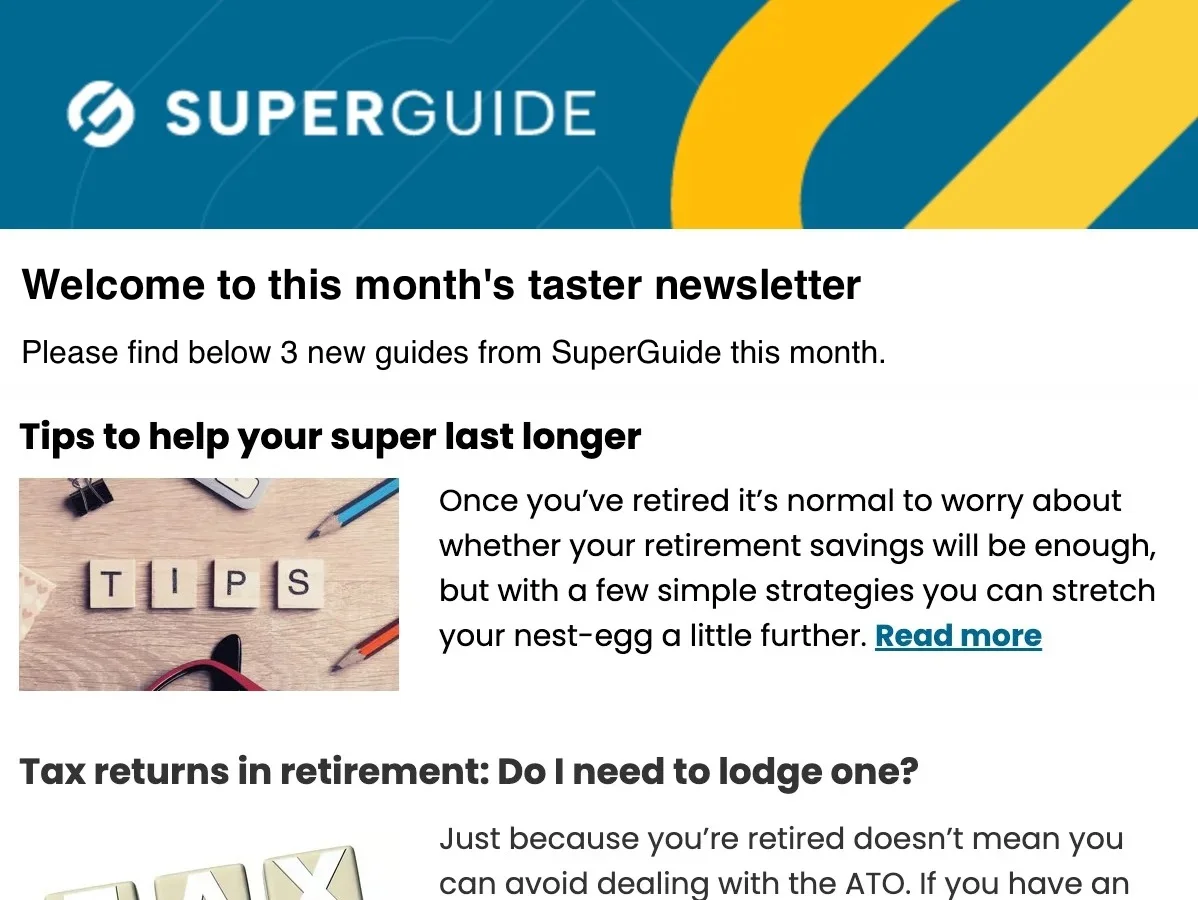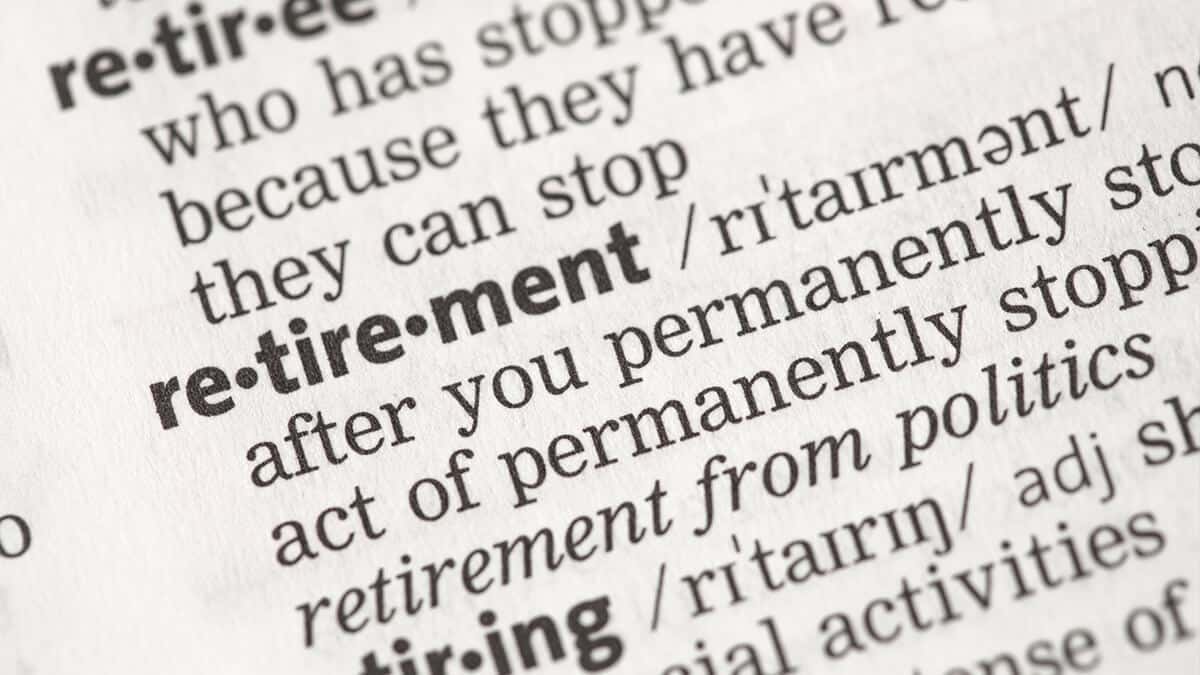In this guide
- What is the retirement condition of release?
- How do you apply for your super benefits?
- Are there limitations on how you can access your super benefits when you have met the retirement condition of release?
- Can you change your mind and go back to work?
- Common questions about accessing super
- The bottom line
When you turn 60, you have reached the milestone that is your preservation age. This makes accessing your super much easier but don’t celebrate just yet.
Next, you also need to meet a condition of release. One of these conditions is retirement, but the definition of retirement may not be as straightforward as you think. We have put together this explainer to take away the complexity and answer the burning question of when you can access your entire super balance.
What is the retirement condition of release?
The retirement condition of release has two branches. Meeting either one will permit you to access all of your super (as a lump sum, an income stream, or a combination of both).
The first branch of the definition requires you to declare you have permanently retired from the workforce. To declare you have permanently retired according to Australia’s super legislation you must have:
- Reached your preservation age (currently 60)
- Ceased gainful employment (at any time in the past), and
- Have no intention of becoming gainfully employed again in the future.
The second branch requires only that you have ceased a gainful employment arrangement after reaching the age of 60. You may be changing jobs, may have resigned from one job and kept another (or others), or may not be intending to return to work at all. The key is that the date you left a job must be on or after your 60th birthday.
Being gainfully employed in this context has a technical meaning. That is, receiving any sort of monetary reward for working at least ten hours a week. If you have never worked, you can’t use the retirement condition of release.
Meeting the retirement condition of release (via either branch) will grant access to the super benefits you’ve accumulated up to that point in time. Any super you accumulate with a new or second employer must be preserved until you meet a condition of release again (including meeting the retirement condition of release a second time or turning 65).
How do you apply for your super benefits?
The requirements of different super funds vary, but most will ask you to sign a form that declares you have met the retirement condition of release. You will usually be asked to tick the box that applies to you, either that you are permanently retired or that you have left an employer after your 60th birthday. They may also require a declaration from your employer. You must provide appropriate proof of identity before any of your super funds will be released.
This might seem like bureaucratic box-ticking, but trustees of super funds (including self-managed super funds) need to ensure that they comply with super legislation when paying benefits to fund members. Failure to do so can attract harsh penalties by the Australian Taxation Office (ATO) for SMSF trustees.
Are there limitations on how you can access your super benefits when you have met the retirement condition of release?
No, there aren’t.
You can choose to withdraw your super as a lump sum, as an income stream (also known as a superannuation pension) or as a combination of the two.

Free eBook
Retirement planning for beginners
Our easy-to-follow guide walks you through the fundamentals, giving you the confidence to start your own retirement plans.
"*" indicates required fields
Before you elect how and when you want to access your super, it’s important to consider your goals and the tax benefits of the super system.
Can you change your mind and go back to work?
If you declared you were permanently retired and accessed your super, you can still return to work. What is important is that your intention at the time of signing the declaration was to permanently retire from gainful employment (meaning paid work of 10 hours or more per week).
For example, your personal circumstances may have changed since you retired so you need to earn extra cash, or you may simply find retirement unfulfilling and change your mind about returning to work.
If you simply declared you had left a gainful employment arrangement after turning 60, there are no restrictions on you returning to work. However, all new super contributions and associated earnings cannot be accessed until another condition of release is met.
Common questions about accessing super
The rules around accessing super can be confusing, so we’ve addressed some common questions.
The bottom line
Using the retirement condition of release will grant you full access to your super when you are between 60 and 65.
Supercharge your retirement

Get pension and retirement tips and strategies with our free monthly newsletter.
"*" indicates required fields
If your circumstances do not meet the requirements, you can still access up to 10% of your super balance each year with a transition-to-retirement pension.
You should seek independent professional advice to understand the tax implications and what is appropriate for your individual financial circumstances.
The information contained in this article is general in nature.



Leave a Reply
You must be logged in to post a comment.